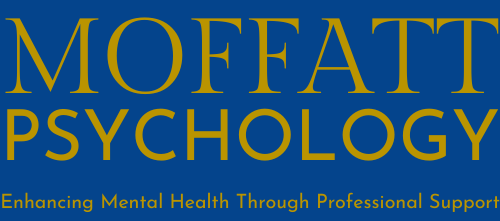Workplace bullying is a pervasive issue that affects many employees across various industries. At Moffatt Psychology, we are dedicated to providing high-quality psychological support to help individuals navigate through such challenging experiences. Understanding the long-term effects of workplace bullying and emphasizing the critical need for early intervention can make a significant difference in employees’ mental well-being and overall workplace culture.

Understanding Workplace Bullying
Workplace bullying can be defined as repeated and unreasonable behavior directed towards an employee or a group of employees, which can create a risk to health and safety. It can manifest in various forms, including:
- Verbal Abuse: Insults, threats, or constant criticism.
- Social Exclusion: Isolating or ignoring the victim.
- Intimidation: Creating fear through aggressive behavior or threats.
- Undermining Work: Sabotaging someone’s work or effort.
According to recent data, a significant percentage of employees have encountered some form of bullying at their workplace, which can lead to severe long-term consequences.
The Long-term Effects of Workplace Bullying
The impact of workplace bullying extends beyond the immediate emotional distress it causes. It can have profound long-term effects on the victim’s mental and physical health, as well as their professional life.
Mental Health Implications
- Anxiety and Depression:
Victims of long-term bullying are at a heightened risk of developing anxiety disorders and depression. The constant stress and fear can significantly affect their emotional well-being. - Post-Traumatic Stress Disorder (PTSD):
In severe cases, individuals may develop PTSD due to the traumatic experiences they face in the workplace. Symptoms include flashbacks, nightmares, and severe anxiety. - Low Self-Esteem:
Continuous belittlement and criticism can severely damage an individual’s self-esteem, leading to a lack of confidence in both personal and professional life.
Physical Health Consequences
- Chronic Stress:
Prolonged exposure to stressful situations can lead to chronic stress, which is associated with various health issues such as cardiovascular diseases, weakened immune system, and gastrointestinal problems. - Sleep Disorders:
Victims may experience insomnia or other sleep disorders due to anxiety and fear related to workplace bullying. - Physical Ailments:
The stress and anxiety from bullying can manifest physically as headaches, muscle pain, and other somatic symptoms.
Professional Repercussions
- Decreased Productivity:
The emotional and psychological toll can lead to decreased productivity and engagement at work, affecting the individual’s overall performance. - Career Stagnation:
Victims might avoid taking on new challenges or seeking promotions due to diminished confidence and low self-esteem. - Increased Absenteeism:
The stress and fear associated with bullying can lead to increased absenteeism, as victims may take more sick leave to avoid the hostile environment.
Importance of Early Intervention
Given the profound long-term effects of workplace bullying, early intervention is crucial. Addressing the issue promptly can mitigate the impact on the victim and improve the overall workplace environment. Here are some actionable steps for early intervention:
1. Create Awareness and Educate
- Training Programs: Conduct regular training sessions to educate employees about what constitutes bullying, its effects, and the importance of a respectful workplace.
- Workshops: Organize workshops that focus on communication, conflict resolution, and team-building exercises to foster a supportive work culture.
2. Establish Clear Policies
- Anti-Bullying Policy: Develop and implement a comprehensive anti-bullying policy. Ensure that all employees are aware of the policy and understand the consequences of bullying behavior.
- Reporting Mechanisms: Create clear and accessible channels for reporting bullying incidents. Ensure that these mechanisms are confidential and non-retaliatory.
3. Provide Support Systems
- Employee Assistance Programs (EAPs): Implement EAPs that provide counseling, psychological support, and other resources to help employees deal with bullying and its effects.
- Access to Psychological Therapy: Offer access to professional psychological therapy services. At Moffatt Psychology, we provide individual therapy sessions that can help employees cope with the trauma and stress resulting from workplace bullying.
4. Promote Open Communication
- Open-Door Policy: Encourage an open-door policy where employees feel safe to discuss their concerns with management without fear of retribution.
- Regular Check-Ins: Managers should conduct regular check-ins with their team members to gauge their well-being and address any issues proactively.
5. Take Immediate Action
- Swift Investigation: When a bullying report is made, conduct a thorough and immediate investigation. Involve neutral parties to ensure fairness.
- Appropriate Consequences: Implement appropriate consequences for bullying behavior, reinforcing a zero-tolerance policy.
6. Foster a Positive Work Culture
- Lead by Example: Leadership should model respectful and inclusive behavior, setting the tone for the entire organization.
- Recognition and Rewards: Recognize and reward positive behavior that promotes a supportive and collaborative work environment.
Psychological Therapy: A Vital Tool
Psychological therapy plays a vital role in aiding individuals to recover from the trauma of workplace bullying. Here are some benefits of psychological therapy:
- Emotional Well-being: Therapy helps individuals manage stress, anxiety, and depression, improving their overall emotional well-being.
- Self-awareness: Therapy encourages deep self-reflection, helping individuals understand their thoughts, feelings, and behaviors.
- Coping Mechanisms: It equips individuals with effective strategies to handle stress and navigate difficult situations.
- Symptom Relief: Therapy can provide significant relief from symptoms associated with mental health disorders, helping individuals lead more functional lives.
- Preventative Care: Regular therapy sessions can help identify potential issues early, promoting long-term mental health and resilience.
At Moffatt Psychology, we are dedicated to providing high-quality psychological therapy to support individuals on their journey to mental well-being.
Conclusion
Addressing workplace bullying and its long-term effects is crucial to fostering a healthy, productive work environment. Early intervention, clear policies, ongoing support, and access to professional psychological therapy can significantly mitigate the negative impact of bullying. By prioritising the mental health and well-being of employees, organisations can cultivate a positive and respectful workplace culture.
For more information on how Moffatt Psychology can support you or your organisation in addressing workplace bullying, please feel free to contact us. Together, let’s create a safer and more supportive work environment.
Workers’ Compensation
For clients covered under Workers’ Compensation, psychological therapy sessions are free of charge, provided that the treatment is approved by the State Insurance Regulatory Authority (SIRA). Please make sure to bring all necessary documentation and approvals to your first appointment.


